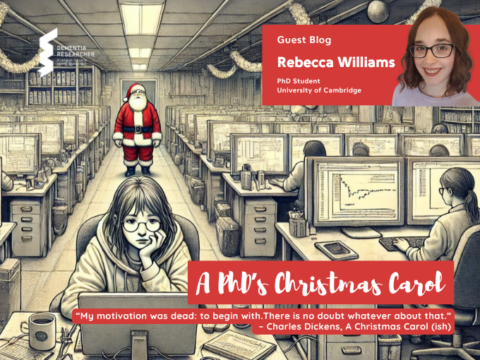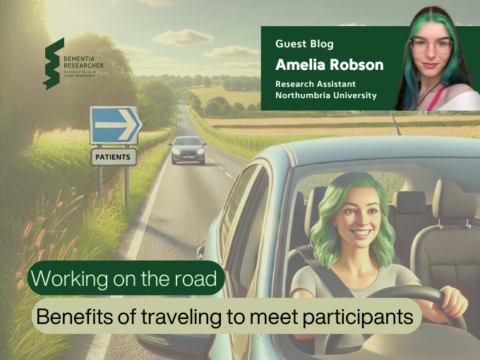Wintertime—or as I like to call it—application season. Fun! It’s that daunting time of the year when undergraduates, like myself, being their search for internships, placements, and graduate opportunities. In my previous blog entry, I shared my plans to apply for graduate schemes and PhD studentships. This time, I thought it’d be best to share some resources that were instrumental in me finding job opportunities after university.
10,000 Black Interns Foundation – If you’re from the Black community, this resource can be a game-changer for you. The 10,000 Black Interns scheme matches up undergraduates and graduates to paid internships across an array of sectors including life sciences. What I like about this scheme is that it’s flexible-you can apply to up to three sectors. For example, I applied to Pharmaceutical and Life Sciences, Technology (non-technical), and Health Data Research, and my application was sent to organizations in all these areas. If successful in the application process, you can be offered an internship. So far, I have been unsuccessful for one of my options but I’m still holding out hope. A resource like this is invaluable in creating opportunities for underrepresented communities, especially in sectors that lacks representation. For instance, I have briefly spoken about the need for there to be more ethnic minorities within the scientific community. And applying to a scheme like this can be pivotal in inspiring young budding scientists to pursue a career in either academia, pharmaceutical industry, or science communication. So, if you’re in your penultimate year of university, then this is the perfect time to consider to apply to this scheme for the 2026 programme.
University Careers Services – Another resource that I think is underrated is your university career’s service. Drawing from my own experience at the University of Manchester, I’vebenefited so much withtheir tailored job alerts coming right into my inbox. Once you refine your preferences, you are able to access everything from summer internships and graduate schemes to PhD opportunities. The careers service also has dedicated staff who can guide you through every step of the application process. Now admittedly, I mainly take advantage of the online aspect of the careers’ service, but I once sought advice from a careers adviser when I was anxious about finding placement opportunities during my second year. This can sometimes be comforting, to hear words of advice in person, rather than being bombarded with emails of job alerts and feeling overwhelmed. Your careers’ service may also offer some practical help ranging from CV workshops to interview preparation. I know it may not seem like it at times with all these deadlines and intensive application processes that are looming over you but, there’s plenty of support available.
British Neuroscience Association (BNA) – For PhD opportunities, I stumbled across the British Neuroscience Association (BNA) website, and this was such a relief as it was a treasure trove of information. It provides a comprehensive list of universities offering Doctoral Training Partnerships (DTPs), which is what I want to apply to, complete with deadlines and available projects. This resource became my go-to when shortlisting institutions for my own PhD applications.
Whether you’re focused on specific research themes or simply exploring what’s out there, the BNA website saves hours of searching.
Bright Network – Lastly, and this one is a popular one if I do say so myself. Bright Network. I think most of us are aware of Bright Network and how it works. But I thought I’d share my personal experience of using it. After tailoring the searching process, the website made recommendations according to my profile. As a result, I found loads of graduate roles that I wouldhavenever thought of, all with instructions on how to apply.
There are also webinars and virtual internships you can attend through Bright Network for upskilling from home and improving your CV. These have formed a foundation in regard to applications, and that has helped me find opportunities I might have otherwise never found.
Whether you are applying for a summer internship, a placement year, or a full-time job, I hope these tips point you in the right direction. Remember: persistence is key, and that opportunity is out there waiting for you.
If you know of any other internship oppertunities, I would love to hear about them… please share in the comments.

Yasmin Bonsu
Author
Yasmin Bonsu is an an undergraduate student from the University of Manchester, who recently completed a placement year in the Carlyle Lab at Oxford University. Yasmin was investigating the activity of proteoforms of the granin family in cortical neurons insulted with oligomerised amyloid beta. Her goal is to her bachelor’s degree in neuroscience, and then pursue a PhD in clinical neuroscience. Through Yasmin’s blogs we’ll gain insights on life as an undergraduate, and hopefully inspire others to pursue a career in dementia research.

 Print This Post
Print This Post





